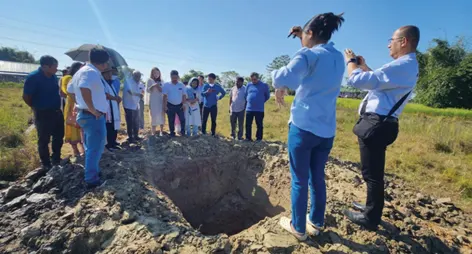NAMSAI, 7 Nov: HoDs and officials of the State Remote Sensing Application Centre (SRSAC) and the science & technology, agriculture, horticulture, fisheries and forest departments participated in a workshop on ‘natural resources inventory for micro level agricultural planning (NRIMAP) using remote sensing and GIS technologies’, organised by the SRSAC, in collaboration with the agriculture department, at the DC’s conference hall here on Monday.
Addressing the participants, Arunachal Pradesh State Council for Science & Technology Chairman Bamang Mangha, who chaired the meeting, informed that “the project is being taken up on a pilot basis in Namsai, Lower Subansiri and Tawang districts. It will be introduced on a larger scale, covering other districts, based on the success rate of the pilot project.”
He said that adoption of such projects would increase transparency and ensure that funds from the government exchequer are not misused.
Namsai ADC S Mining sought cooperation from the departments concerned in rolling out the NRIMAP project, and gave assurance that “the base maps handed over by the chairman shall be revisited and authenticated to avoid any misrepresentation.”
Hyderabad-based RSI CEO BV Ramana Kumar made a presentation on the activities being carried out by the RSI.
“The RSI is the oldest scientific organisation in the field of remote sensing and GIS, working under 700 projects across India,” he said.
He presented an overview of the NRIMAP, and said that “circle-wise base maps have been prepared by the team, which shall be handed over to the Namsai deputy commissioner for further authentication and necessary correction.”
SRSAC scientist Saumitra Deb made a presentation showing “natural resource mapping, base maps, contour map, transportation network, etc,” while scientist BR Rao made a presentation on “soil mapping and soil profile study.”
“Analysis of soil sample for availability of major and minor nutrients, soil classification, codifications, etc, shall be carried out under the project,” he informed.
It was also informed that a user-friendly web application will be developed “for a highly initiative and effective recommendation system.”
Science & Technology Director CD Mungyak also attended the programme.
The session was following by a field visit to Kherbari for soil profile study.



